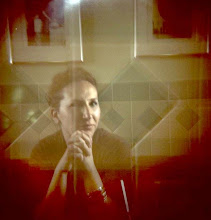This seems to be the mantra for newspaper writing these days. Coming from a print-centric background, instinctually I thought shorter meant worse.
But, when it's done well, it's a joy to write and to read.
For a few tips, check out the succinct list by Roy Peter Clark from the Poynter Institute.
In it, Clark stresses to omit needless words, cut the weak, shorten sentences, revise, polish and focus.
He also says, "Read, study and collect great examples of short writing, everything from the diaries of Samuel Pepys to the tweets of your favourite twits."
However, a number of legacy media people — including my editor and other former editor — have deemed the 140-character social networking site the reason behind the death of the English language and the very tool that is making people stupid.
As an avid Twitterer, ouch.
Short doesn't necessarily signify rubbish — albeit, tweets about a meal or depths of sleepiness are crap.
In terms of journalism, short can be a beautiful way illustrate a moment in life that often go unnoticed.
A prime example of this is the 300 words series by Brady Dennis, who was a night cop reporter in the Tampa bureau of St. Petersburg Times.
A personal favourite is After the sky fell, which was published in January 2005.
As a reporter, it's difficult to switch out of the inverted pyramid, five Ws and how, but, once in awhile, there are stories that lend to this style of writing, like a story I did about a man who had a stroke and just wanted a hot dog.
As papers get thinner and page space gets tighter, this literary journalism approach could very well be the model for the future.

